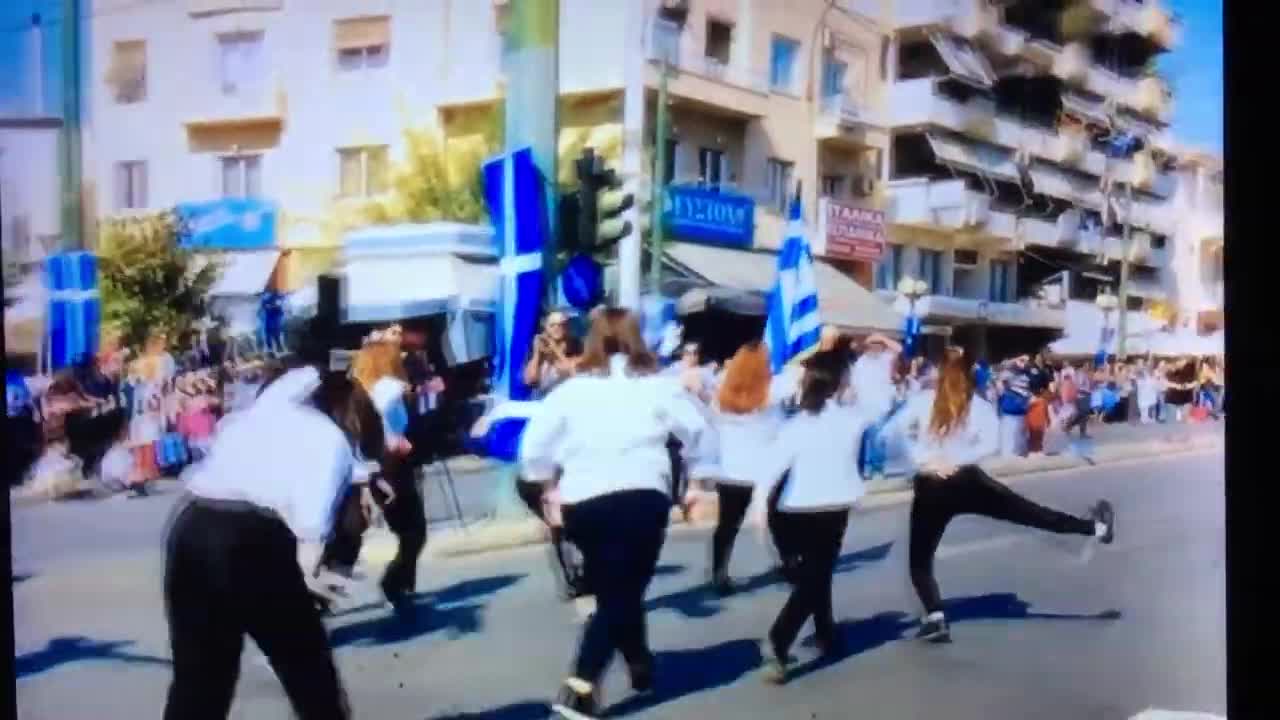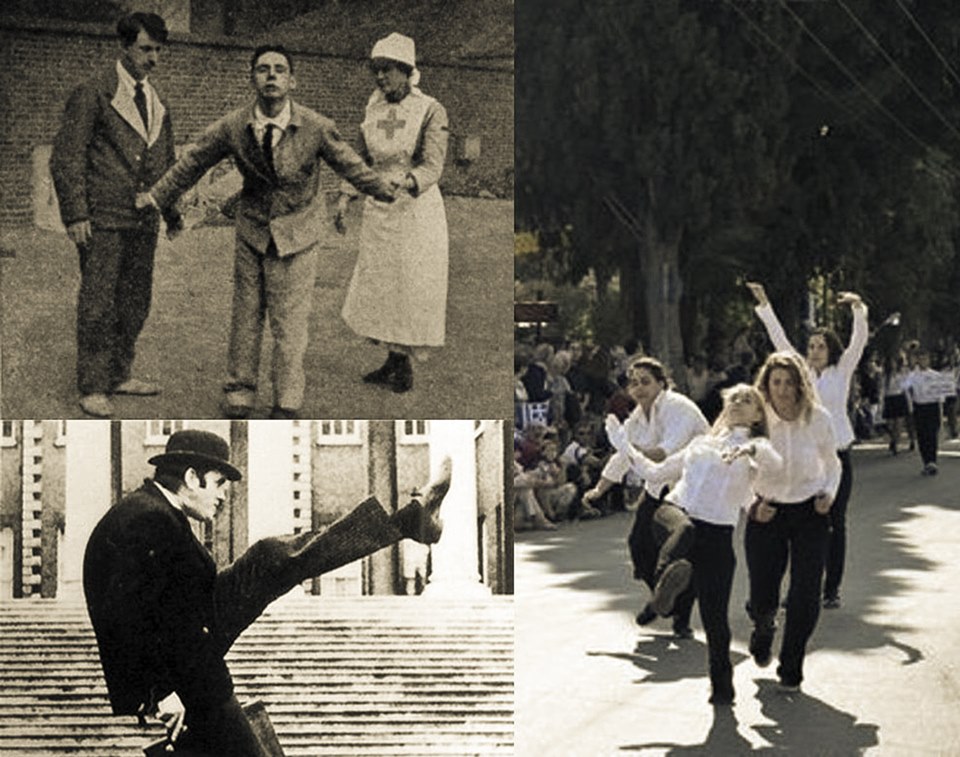A group of ten young actors staged an intervention during a parade in Athens last Monday to protest the rise of nationalism and hate within Greek society. Videos that were released online show the group infiltrating a student parade in the Athens suburb of Nea Filadelfeia on the 28th of October memorial day. Dressed in black trousers and white shirts, and one of them holding the Greek flag on a post, the young artists stood out from the students marching in rank and file thanks to their walking style: each of the performers adopted an exaggerated, comical movement pattern inspired by Monty Python’s “Ministry of Silly Walks” sketch.

The intervention has shocked local officials and patriots, who typically gather in all seriousness every year on this day to commemorate Greece’s participation in the Second World War. Soon after the videos were released online, various conservative voices have demanded the artists be punished for showing disrespect to national symbols. The mayor of Nea Filadelfia — a former actor known mainly for starring in 1990’s B-movies — attacked the ten young artists via Facebook, calling them “ridiculous” and “pathetic”. The mayor later issued a joint statement with the local bishop to condemn the intervention as “insulting” towards the flag and the dead.
The 28th of October is a Greek national holiday, also known as Ohi Day (ohi being the Greek word for no). It commemorates the day when the Greek government rejected an ultimatum from Mussolini, which led to the 1940 Greco-Italian War. The fact that Greece was a dictatorship at the time, as well as how this practically constitutes a celebration of war instead of peace, has been a subject of criticism within Greece, especially in how this celebration plays into the country’s modern nationalist narratives.
Local artists and activists have often criticised the rise of Greek nationalism in the years of post-2008 austerity, linking it to other phenomena also evident in Greek society such as xenophobia, homophobia, police violence and neo-nazism. National identity and a perceived racial purity is often the main excuse for sheer racism and xenophobia in Greece, as many locals prefer catering to tourists than helping the destitute, and the government is methodically removing refugee families with children from solidarity squats in the centre of Athens.
While many have condemned the ten young women for their satirical intervention, others have saluted their action and expressed their support. Feminist groups, artists and others have shared the videos far and wide on social media, and applauded the ten artists for their courage to express criticism in public on such a politically charged occasion. Artists on Facebook have called it a "masterpiece" and "the most important situationist performance in Greece since the 1970's".
Another analysis of the intervention that has been reproduced by dozens of websites and social media accounts draws a connection between the “silly walks” in Monty Python’s sketch with shell shock, a type of post-traumatic stress disorder that afflicted many WWI veterans and which affected their walking. For many, this reading fortified the intervention’s anti-war message, especially due to its choice of time and place.

The group of ten young artists have merely identified themselves as “ten ‘little soldiers’ of the art of acting” in a written statement that was sent to Efimerida ton Syntakton newspaper the day after their intervention, where they also provide a short explanation about their action. Below is their statement in full, translated from the Greek. “Little soldiers standing still” is a Greek variation of a popular children’s game. The phrase “the best sign is to fight for freedom” is paraphrasing the Iliad, replacing “homeland” with “freedom”.
Little soldiers standing still, day or night?
Little soldiers unwound, day or night?
How come the leaders, their armies and their little soldiers are involved in children’s games?
Armies that do wars, bombardments, interventions.
An urgent intervention was what we did, but without the slightest force.
Artistic intervention, something like a game.
We became little soldiers for a while that are unwinding, are glitching in the face of orders, commands, marching music. Perhaps because we are not convinced by the ideas that are embodied in all these things.
What does militarism have in common with freedom? How is protecting a people’s freedom related to the patriotism that we are being taught since we were children? At school, at parades, everywhere.
Man’s war for freedom is neither an epic nor a tragedy. It is life itself in motion. A motion that cannot be controlled and moulded.
This is why we entered the parade unmoulded... Under the spiritual baton of the great general of British comedy, John Cleese, and everything that Monty Python has taught us. With our own silly walk and rhythm.
In the eyes of the officials and many spectators we saw curiosity, surprise but also depreciation. Others booed us, while some thought we were ‘troubled kids’. These are the limits of their patriotism. A homeland for the normals, the predictables, the excellent.
We came here from other homelands, the homelands of the redundant, the unexpected, the living. Thus, the best sign is to fight for freedom.
PS: We chose to go to Nea Filadelfeia - Nea Halkidona, a neighbourhood built by refugees, the redundant and excluded members of Greek society par excellence, then and now.
Signed
10 little soldiers of acting [also reads: of under-critical art]
Video links to the intervention:
https://youtu.be/4VGuvMn50jU
https://youtu.be/JHS1RW7vS2c
https://youtu.be/lKVcypjPs9k
